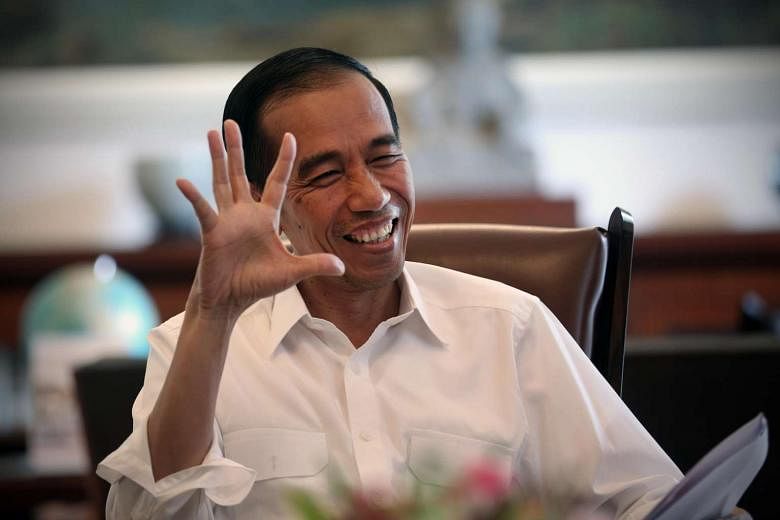President Joko Widodo yesterday made sweeping changes to his Cabinet, replacing nine ministers with a mix of first-time office-holders and veteran policymakers.
Two of the more prominent new appointees were Dr Sri Mulyani Indrawati, who resigned as World Bank managing director yesterday to return as Finance Minister, and former general Wiranto, who will helm the Coordinating Ministry for Political, Legal and Security Affairs.
Mr Wiranto's appointment raised some eyebrows not only because he replaced Mr Luhut Pandjaitan - a confidant of the President - but also because of lingering questions over his role in human rights abuses when he was the armed forces chief.
Mr Luhut will take over as Coordinating Minister for Maritime Affairs and spearhead Mr Joko's master plan of turning Indonesia into a maritime superpower.
The President yesterday indicated that economic imperatives were the driving force for the reshuffle, adding that ministers must strive for strong economic growth and resolve income inequality.

He also said they had to deliver results fast, to deal with poverty in the face of rising global economic weakness.
"We must create more jobs in order to increase wealth," he said.
Analysts said Dr Sri Mulyani, who served as finance minister from 2005 to 2010 during the Susilo Bambang Yudhoyono presidency, is expected to drive Mr Joko's economic reform agenda, including the country's new tax amnesty scheme.
The President, who goes by the moniker Jokowi, made a total of 13 changes to his Cabinet, his second reshuffle in as many years.
The number of changes was also more than twice that in the previous shake-up in August last year.
Those sacked from key ministries include Transport Minister Ignasius Jonan, Energy Minister Sudirman Said and Education and Culture Minister Anies Baswedan.
Two ministers were moved to less prominent posts. Trade Minister Thomas Lembong is now head of the Investment Coordinating Agency, while Finance Minister Bambang Brodjonegoro is chief of the National Development Planning Agency.
The other fresh faces helming critical ministries include Dr Archandra Tahar (Energy), Mr Budi Karya Sumadi (Transportation), Dr Enggartiasto Lukita (Trade) and Mr Airlangga Hartarto (Industry).
Mr Airlangga is from Golkar, the second-largest political party in Indonesia, and his appointment was expected as Mr Joko needed to acknowledge the party for ditching the opposition coalition earlier this year to support the ruling coalition.
The switch by Golkar provided the President with the critical majority in Parliament for the first time since he took office in 2014.
Some analysts saw Mr Luhut's move as part of the President's strategy to turn the sprawling archipelago into a maritime superpower.
"The maritime coordinating ministry has a huge task ahead as Jokowi shifts from a land-centric strategy to a more maritime-centric one. As such, he will need a strong, experienced visionary who understands the President well and Luhut is the man he requires," said Mr Ali Nurdin, a political analyst at Mathla'ul Anwar University.
Cabinet Secretary Pramono Anung defended Mr Wiranto, describing him as "tested and experienced". He held similar posts in defence and security between 1998 and 2000 under former presidents Suharto and Abdurrahman Wahid.
•Additional reporting by Wahyudi Soeriaatmadja

